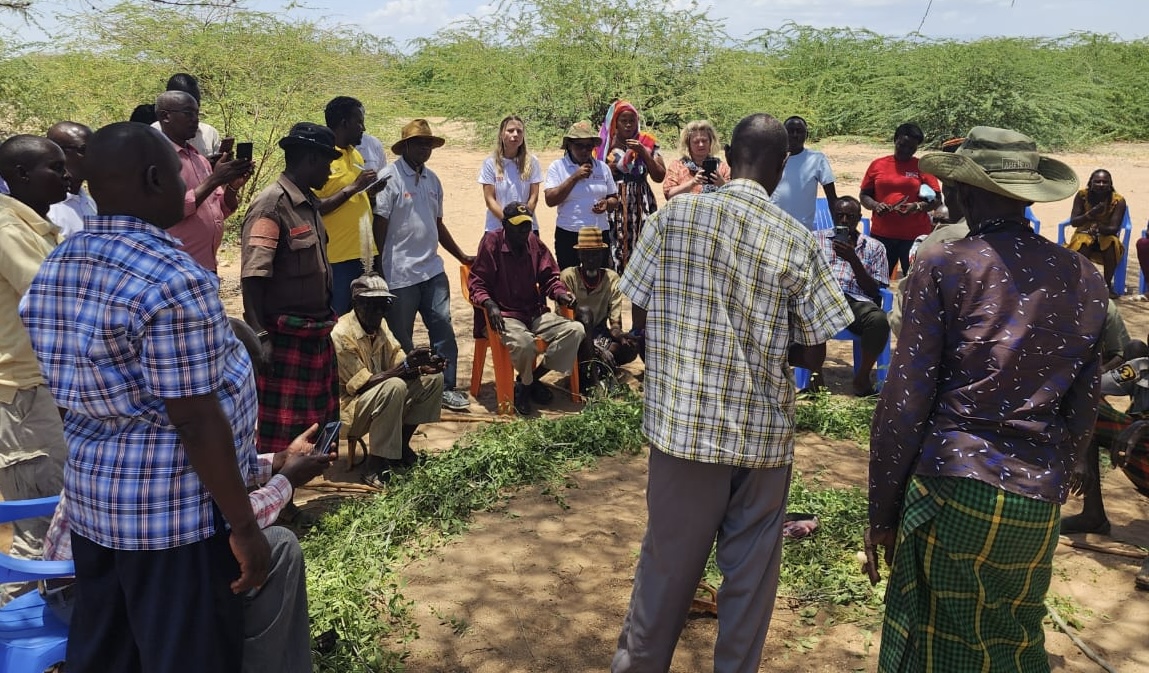

Turkana residents have gone back to the traditional way of predicting the weather to tackle climate change, food insecurity and reduce conflict.
The practice, which is being led by elders, includes studying
the sky, the movement of the stars, behaviour of animals and the flowering of certain
trees.
The elders’ knowledge, passed quietly from one generation to the
next, has now earned formal recognition for its precision and cultural value.
The Kenya Meteorological Department has partnered with them through
Indigenous Traditional Knowledge (ITK) practitioners to produce joint forecasts
that blend scientific data with traditional wisdom.
In their most recent outlook, they predicted stable rains across
the Turkana region — a promising sign for healthy pastures and peaceful
coexistence among cross-border pastoralist communities.
The three- to six-month weather outlook was unveiled at a
ceremony in Loima that brought together experts and community leaders from
Lokiriama and Loima.
The forum, convened by the Danish Refugee Council with support
from DANIDA under the Karamoja Strong Project, forms part of the Participatory
Scenario Planning initiative, which helps communities anticipate climate risks
and manage scarce resources more peacefully.
Lokiriama subcounty Administrator Geoffrey Apedor said the
process seeks to improve the reliability and accessibility of climate
advisories for communities most vulnerable to climate change.
“By having the elders on board, it strengthens confidence within
the community because they have applied traditional methods for many years,” he
said.
Representatives from the Danish Refugee Council, the National
Drought Management Authority and Deputy County Commissioners from Loima and
Lokiriama were among those who attended the event.
Elder and respected ITK practitioner Edapal Echwa from Loima
said traditional readings indicated that rivers would remain full and water
sufficient for livestock.
“Migration will be minimal, meaning the likelihood of conflict
is low. But people must use resources wisely to last through the season,” he said.
Subcounty water engineer Judy Eregae, however, cautioned that
the constant rains could trigger an increase in waterborne diseases and
malaria.
“This information helps
us prepare preventive measures such as health education through Community
Health Promoters and ensure facilities are ready to respond to possible
outbreaks,” she said.
Alfred Loyok, team Leader for the Karamoja Strong Project at
DRC, said the forecast data will inform peace-building strategies and
protection of vulnerable groups.
He said stable rainfall presents opportunities to promote
rain-fed agriculture and strengthen food security.
“Blending science and tradition ensures that climate advisories
resonate deeply with local communities,” he said.
Anthony Mwangi, deputy commissioner for Lokiriama, said accurate
forecasts help residents prevent conflicts before they occur and encourage
lasting peace.
County nutrition coordinator Esekon Debra, deputy subounty administrator Pauline Ngakipi and veterinary officer Mark Andrew attended the event.















